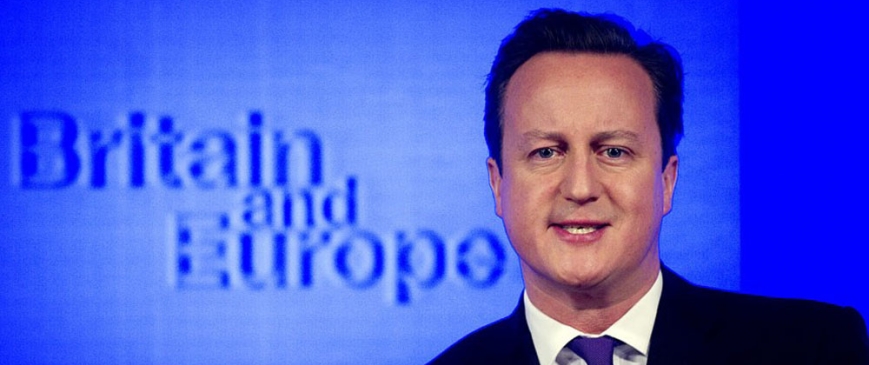
The Remain camp has been weak
As Britons go to the polling booths to decide about their country's EU membership, the outcome of the referendum is impossible to predict.
But whatever the result, what prime minister David Cameron has called "a frenetic campaign" has failed to produce a compelling argument for Europe, EU expert Charles Grant told EUobserver.
"Whatever the result, the Remain camp has been weak," he said in a telephone interview.
If the Remain in the EU option wins, it will be because "ultimately people fear the economic uncertainty and they don't know what the impact of leaving would be," said Grant, who is the director of the London-based Centre for European Reform (CER).
Another reason for a Remain win would be that many voters would not "live in Nigel Farage's Britain", he added, referring the leader of the anti-EU UK Independence Party (UKIP).
Leaders of the Vote Leave campaign, like former London mayor Boris Johnson are "internationalists and economic liberals,” Grant noted. But they "made a pact with the devil" by allying with Farage and using the same anti-migrant rhetoric.
"It's a way of winning but it may worry people," he said.
If, on the contrary, voters choose the Leave option, it will be because of "the inability [of the Remain side] to inspire positive messages and the unaccountable power of the eurosceptic press," he said.
Grant admitted that making the pro-EU argument was a difficult job because it is "economic, boring, hard to explain and not easy to understand."
Cameron and the Remain side "were right to focus on economic risks", he noted, because "it is the best way to convince voters."
But in doing so, they went "over the top" and weakened their case.
When the chancellor of the exchequer, George Osborne, said in April that every family would loose £4,300 each year in case of Brexit, "nobody could believe that," Grant reminded.
Then voters could think: "If they are not modest in their claims, how can we believe them?"
In addition to this kind of overblown argument, the Remain campaign did not produce a positive message that would have appealed to voters, especially the young ones, who could make the difference.
"It should have been that the EU is good for the environment, for clean water, for cheap phones, or for catching companies that cheat tax," Grant noted. "But there was no positive message, at least from the government."
The Remain campaign also had a problem on the messenger, the CER director said.
"The credibility of Cameron and Osborne has been seriously reduced since the election a year ago," he said.
Cameron in April got caught in the Panama Papers affair, when he had to admit that he benefited from an offshore fund created by his father.
The PM and Osborne were also weakened when Osborne presented In March a budget that included cuts in disability benefits. He was forced to backtrack after the resignation of the secretary of state for work and pensions.
"The eurosceptic press highlighted these mistakes and said you cannot trust these people," Grant noted.
On the opposite side, Leave leaders like Farage, former London mayor Boris Johnson or justice minister Michael Gove are "very clever and quite charismatic," he said.
"They have more credibility on the EU. They are more trusted even if they lie. Charismatic people are trusted," he observed.
Leave leaders were also much helped by the eurosceptic press, which gave almost no space to pro-EU voices and spread lies.
"We all knew what the eurosceptic press is, but the Express, the Mail, the Sun excelled themselves," Grant said.
He said that other media were not equipped to properly cover the campaign. He gave the example of the BBC, where "there is a lack of expertise". Journalists "don't know enough about the EU" and have not been able to "challenge the lies of Brexiters".
In the end, the campaign was about the economy and migration - an issue on which the Remain side "doesn't know what to say" - and not at all about the event after which Cameron called the referendum: the deal on EU reform agreed in February between the PM and EU leaders.
Cameron hasn't made a case about it because it is a problem for the government, Grant said.
First because the prime minister himself "has been too slippery," he said. "Before the deal, Cameron said that the UK would be fine outside the EU, now he says it would be Armageddon if we leave."
Secondly because "media judged the deal was rubbish," Grant said. "They decided that it should be given no credit at all, so normal voters think it's rubbish."
Charles Grant is director of the Centre for European Reform.
